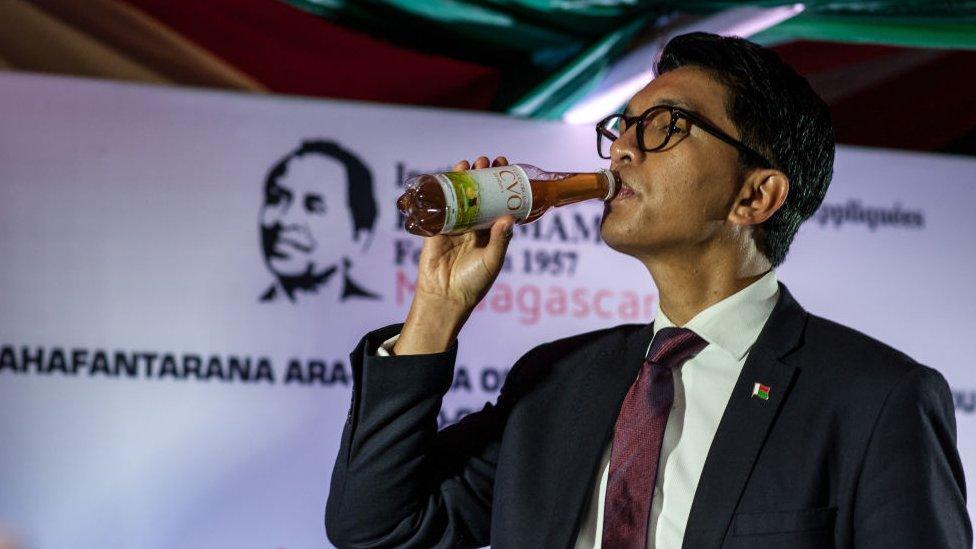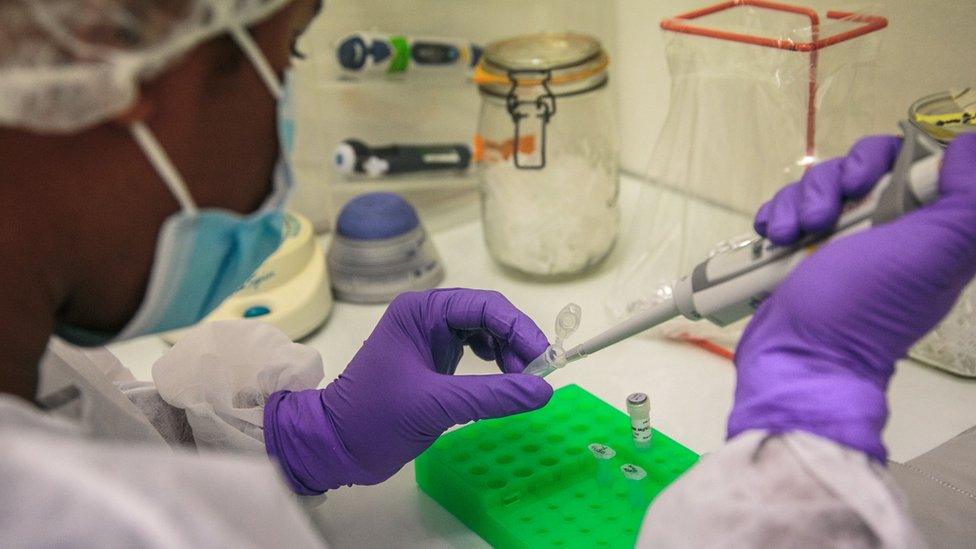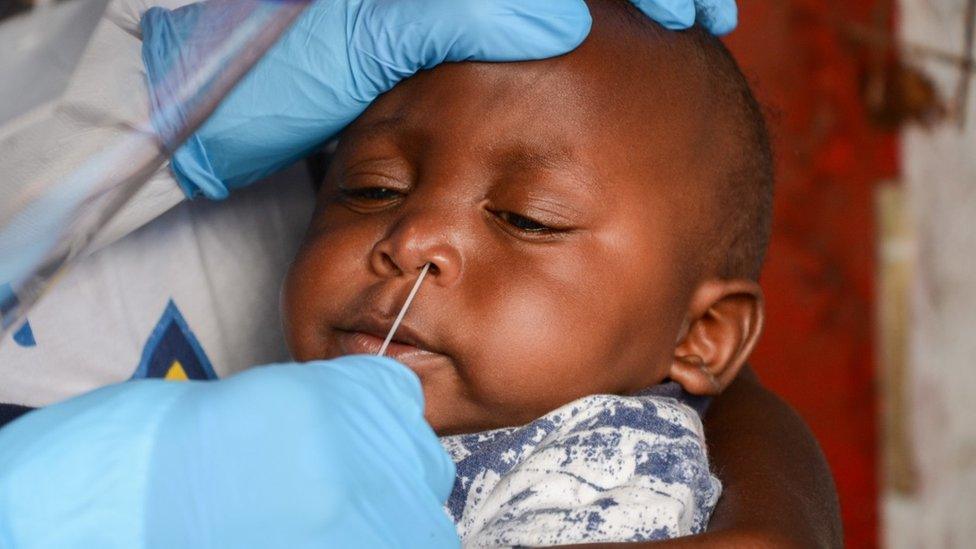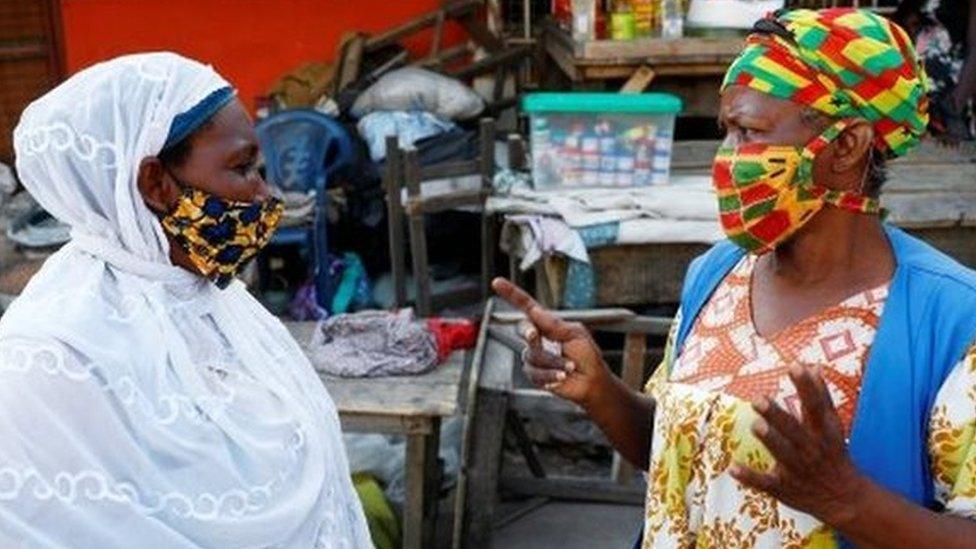Coronavirus: Madagascar President Rajoelina hits out at tonic 'detractors'
- Published

Mr Rajoelina says if a European country had manufactured the tonic the West's reaction would be different
Madagascar's President Andry Rajoelina has said criticism of an untested herbal tonic that he is touting as a treatment for Covid-19 shows the West's condescending attitude towards Africa.
The World Health Organization (WHO) has warned against using untested remedies.
Mr Rajoelina's tonic has not gone through clinical trials.
The African Union has also said it wanted to see the scientific data on the "safety and efficacy" of the product, known as Covid-Organics.
"If it was a European country that had actually discovered this remedy, would there be so much doubt? I don't think so," Mr Rajoelina said in an interview with French news channel, France 24., external.
Madagascar has reported 193 Covid-19 cases and no deaths.
The tonic was tried out on fewer than 20 people over three weeks, a presidential aide told the BBC, when the product was first launched last month - which is not in line with WHO guidelines on clinical trials.

Until a vaccine is found, the WHO says testing and contact tracing is the best way to contain the virus
Despite the reservations, several African countries, including Nigeria, Guinea-Bissau, Equatorial Guinea and Liberia, have already ordered Covid-Organics, which is produced from the artemisia plant - the source of an ingredient used in a malaria treatment - and other Malagasy plants.
WHO has said Africans deserved access to medicines that have gone through proper trials even if they are derived from traditional treatments.
In the television interview, Mr Rajoelina said "African scientists... should not be underestimated.", external
But there is no peer-reviewed data to show that Covid-Organics is effective.
A meeting of 70 experts on African traditional medicine has agreed that clinical trials for all medicines must be carried out, the WHO's Africa region has tweeted.
Allow X content?
This article contains content provided by X. We ask for your permission before anything is loaded, as they may be using cookies and other technologies. You may want to read X’s cookie policy, external and privacy policy, external before accepting. To view this content choose ‘accept and continue’.

There has also been warning from experts that the drink could give people a false sense of security which could lead people to expose themselves to the virus.
Last week, more than $8bn (£6.5bn) was pledged to help develop a coronavirus vaccine and fund research into the diagnosis and treatment of the disease.
Dozens of research projects trying to find a vaccine are currently under way across the world.
Most experts think it could take until mid-2021, about 12-18 months after the new virus first emerged, for a vaccine to become available.

You may also be interested in:
Coronavirus: How Covid-19 is affecting remittances to Africa

Several African countries acted swiftly in trying to prevent the spread of coronavirus by imposing lockdowns or curfews. But these are now beginning to be lifted as governments try to balance health and economic interests.
The easing of the lockdowns has added urgency to the need to find treatments.

A SIMPLE GUIDE: How do I protect myself?
HOPE AND LOSS: Your coronavirus stories
FACE MASKS: Should I be wearing one?
HOW A VIRUS SPREADS: An explanation

- Published15 May 2020

- Published1 May 2020
